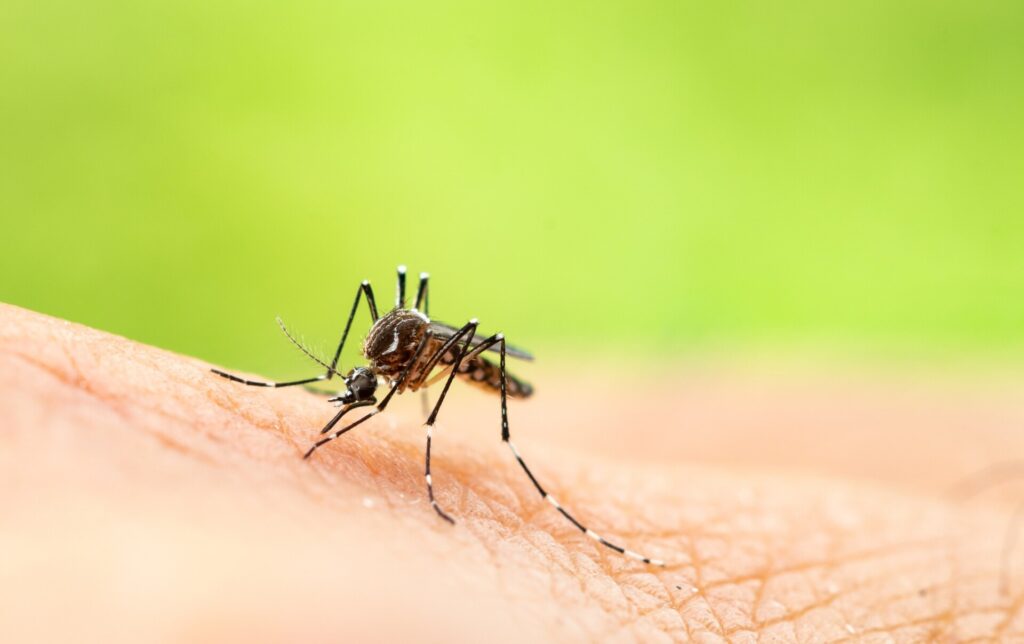Public health officials are warning of an increase in cases of chikungunya in England after travellers caught the infection abroad.
There have been 73 cases in the first six months of the year in England, the UK Health Security Agency (UKHSA) said, compared with 27 cases in the same period in 2024.
It is the highest number of chikungunya cases ever seen in England and reflects ongoing outbreaks overseas.
Among the cases this year, most had travelled to Sri Lanka, India and Mauritius due to outbreaks across the Indian Ocean region, the figures show.
Related Article: Menopause care in practice
Spread by mosquitoes, the symptoms of chikungunya include a sudden onset of fever usually accompanied by joint pain.
Most people recover fully within a couple of weeks but for some the joint pain can persist for months or even years.
Up to 12% of patients still experiencing discomfort three years after infection, UKHSA said.
The two types of mosquitoes that spread chikungunya are not yet established in the UK and there is currently no risk of onward transmission, experts said.
Two vaccines against the infection have been approved by the Joint Committee on Vaccination and Immunisation but they are only available privately through travel clinics.
In a statement published in July, the JCVI said there had also been outbreaks in France and Italy.
Related Article: CPE ‘seeking assurance’ on Mounjaro reimbursements after price hike
The presence of Aedes mosquitoes in European countries, and importations from infected travellers returning from endemic countries, means that the likelihood of spread in mainland Europe is high, it noted.
There have been reports of more than 7,000 cases of chikungunya in China’s Guangdong province since July, prompting strict infection control measures in the region.
A UKHSA report on travel-associated infections also found that Oropouche virus disease, which is spread by midge bites, was reported for the first time in England, Wales and Northern Ireland, with three imported cases linked to travel to Brazil.
Dr Philip Veal, consultant in public health at UKHSA, said: ‘Chikungunya can be a nasty disease and we’re seeing a worrying increase in cases among travellers returning to the UK.
‘While this mosquito-borne infection is rarely fatal, it can cause severe joint and muscle pain, headaches, sensitivity to light and skin rashes. Thankfully symptoms usually improve within a few weeks, but joint pain may last for months or longer.’
Related Article: Teplizumab becomes UK's ‘first-ever’ approved immunotherapy for type 1 diabetes
He urged people to take precautions against mosquito bites when travelling, including using insect repellent, covering up and sleeping under insecticide-treated bed nets.
This article was first published by our sister publication Pulse.


Have your say
Please add your comment in the box below. You can include links, but HTML is not permitted. Please note that comments are not moderated before publication and the views expressed are those of the user and do not reflect the views of The Pharmacist. Remember that submission of comments is governed by our Terms and Conditions. You can also read our full guidelines on article comments here – but please be aware that you are legally liable for any libellous or offensive comments that you make. If you have a complaint about a comment or are concerned that a comment breaches our terms and conditions, please use the ‘Report this comment’ function to alert our web team.